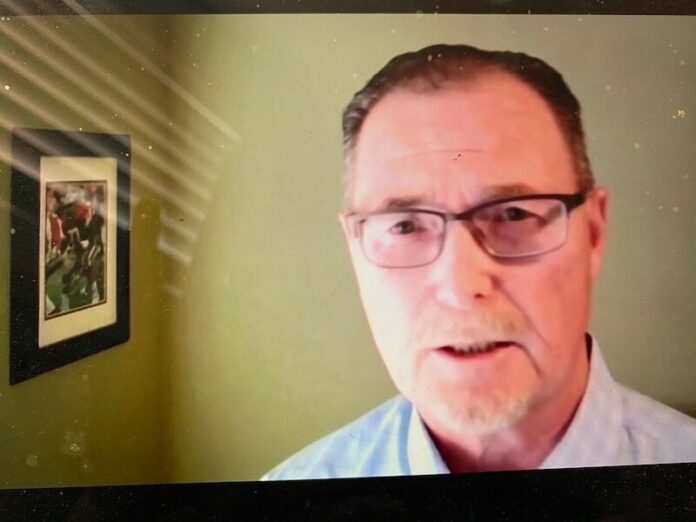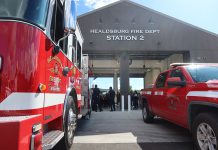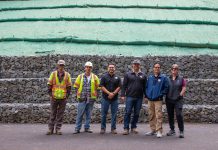Editor’s note: In order to keep this story from being too long, each candidates responses will be presented separately, in alphabetic order.
On March 25, the five candidates vying for a short-term seat on the Windsor Town Council came together virtually to participate in a forum hosted by the Windsor Chamber of Commerce and the League of Women Voters and moderated by local personality Pat Kerrigan.
Oscar Chavez, Julia Donoho, Jeffrey Leasure, Rosa Reynoza and Cody Wilson all took turns sharing their vision and ideas with the 138 tuned in voters in their bid to take over Dominic Foppoli’s former at-large town council seat, vacated when he was elected mayor last fall.
The special election will take place via mail-in ballot only, with the first ballots arriving in mailboxes April 5 and due no later than May 4. The last day to register to vote in the election is April 19. The seat will be up for regular election in the fall of 2022, meaning the winner of the special election will be seated for approximately 17 months.
Due to the town transitioning to district elections, the winner of this special election will be able to run in 2022 only if they live in one of the districts up for vote in that election. Because this seat is still an at-large seat, any town resident is eligible.
The forum allowed candidates to make a two minute introductory statement, then gave them two minutes to answer questions sent in by residents ahead of time, followed by a one minute closing statement.
The questions covered familiar territory, including COVID pandemic recovery, the Town Green civic center project, equity and social justice, affordable housing and development, how to spend the Lytton tribe’s $16.5 million community benefit grant, disaster preparedness and how to strike the balance between small-town feel and the need for economic development, specifically tourism.
Jeffrey Leasure has lived in Windsor for 32 years and is an insurance broker. He’s raised his family here, with three children going to Windsor schools. Previously, he was a planning commissioner and he has run for council seats, most recently last fall when he sought to replace Deborah Fudge in her district council seat.
“What I bring to table is a perspective of history and economics,” he said in his opening statement. “My background is in economics and finance, and we are facing serious financial difficulties as a town going forward. We’ve gone from a reserve of 20% to one that will be zero in a few years. The only way to change that is new revenue sources … I would like people to consider my experience in raising revenues, bringing new jobs and small businesses and not just building.”
When considering the impacts and recovery from the COVID-19 pandemic, he feels solutions need to be local.
“The challenge with trying to reignite an economy is not getting loans, it’s getting the 27,000 people who live here excited about things,” he said.
He mentioned the exodus from Silicon Valley in the face of increased work from home opportunities, and said he wants to create a community development condition to lure those businesses and homeowners here.
Leasure ran previously on a platform opposing the civic center project, and he hasn’t softened his stance.
“My approach from the last election was I do not support the Robert Green Company project on the Town Green, or the gym and civic center being torn down so a large developer can build a project,” he said, adding he doesn’t believe the project will pencil out and the town will be on the hook for funding. However, he does understand the space challenges being faced by the various departments currently housed in the civic center, and suggested that since all town employees are currently working from home successfully, that perhaps that could continue to create additional space.
When discussing issues of racial equality and social justice, Leasure suggested making sure business owners are all treated equally and being aware of inclusiveness on commissions.
“One of the things we haven’t talked about is affordable housing, and you can’t build a diverse community when people of color are not able to afford expensive housing and it’s unfortunate,” he said.
Fellow candidate Reynoza called him out on equating affordable housing with people of color. “I have to say I don’t think people of color and affordable housing should align in same sentence,” she said. “It doesn’t matter the color of your skin.”
To deal with the affordable housing issue, Leasure believes that increasing supply is the only way to solve it. He thinks multi-story, multi-family housing will have to become more acceptable to residents, and that procedural things, such as waiving fees for accessory dwelling units, is the best way to manage.
“We need to focus on finding locations where can build multi-level housing, though I know people don’t want to have a five-story building next to their house. But, we need town homes and condo-style house, work-live units, just lots of options … home ownership is a commitment and responsibility, but that’s why I believe in ownership, not renting, because it I believe it also makes them happier with where they live.”
Leasure didn’t have a strong opinion on the use of the Lytton tribes funds, though he’s extremely concerned about long-term costs and ongoing maintenance and that whatever gets picked should not cost more that the amount of the available funds. He also made a pitch for considering location, as he feels like the east side of town doesn’t have as many opportunities at present.
Being an insurance agent, Leasure has a lot of first-hand experience with the aftermath of wildfires and the devastation it causes for individuals and families. He’s a proponent of improving defensible space around the town and individual properties.
“What frustrates me (is the conversation about) defensible space. The number one recommendation that comes from fire fighters and insurance agents is defensible space, and no one listens,” he said. “Once fire starts, it doesn’t matter what apparatus and staff you have, you end up with people that die.”
Leasure wrapped up his thoughts by saying he didn’t think Windsor has any business catering to tourists. “One of the things I find interesting about Windsor is that one of the reasons have more first responders living here than other town in Sonoma County is the thought of a family-friendly Windsor,” he said. “If that changes direction and there are tourists everywhere, we don’t want to see it in Windsor.”
He thinks the key to Windsor future success is increasing local jobs and work from home opportunities and increased construction of affordable housing.









